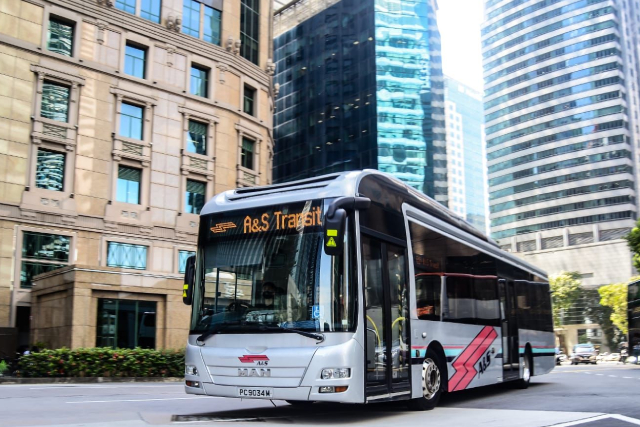
Organising a large event can be an exhilarating yet challenging experience. One critical aspect of event planning, especially for large gatherings, is transportation. Ensuring that guests arrive on time, safely, and comfortably can make or break the event. Coordinating multiple bus rental services might seem daunting, but with careful planning and attention to detail, it can be managed smoothly.
Here’s a comprehensive guide on how to coordinate multiple bus rentals for large events.
1. Determine your needs
The first step in coordinating bus rentals is to determine your transportation needs. Consider the following factors:
- Guest list: Know the number of attendees to estimate how many buses you’ll need. It’s advisable to overestimate slightly to accommodate last-minute additions.
- Event location: The distance to the venue will influence the type of buses you need. For longer trips, more comfortable buses with amenities might be necessary.
- Timing: Establish clear pickup and drop-off times. Factor in possible delays due to traffic or other unforeseen circumstances.
2. Budgeting
Transportation can be a significant portion of your event budget. When planning, account for:
- Rental costs: Different types of buses come with varying price tags. Standard buses might be more economical, while luxury coaches will be more expensive.
- Fuel costs: For longer distances, fuel can add a considerable amount to your expenses.
- Driver fees: Ensure the cost of drivers, including potential overtime, is included in your budget.
- Contingency funds: Allocate a portion of your budget for unexpected expenses.
3. Research and select a bus rental company
Choosing the right bus rental company is crucial. Here are some tips:
- Reputation: Look for companies with positive reviews and a good track record. Word of mouth, online reviews, and testimonials can be helpful.
- Fleet variety: A company with a diverse fleet can cater to your specific needs, whether you require standard buses, luxury coaches, or minibusses.
- Customer service: Responsive and professional customer service can make the coordination process much smoother.
4. Plan your routes
Efficient route planning is essential for timely arrivals and departures. Consider the following:
- Pick-up points: Determine convenient pick-up locations for your guests. These should be easily accessible and safe.
- Routes: Plan the most efficient routes, considering traffic patterns, road conditions, and potential detours.
- Stops: Minimise the number of stops to reduce travel time. Ensure all stops are safe and convenient.
5. Communicate clearly
Clear communication is key to coordinating multiple bus rentals. Here’s what to do:
- Confirm details: Double-check all details with the bus company, including pick-up and drop-off times, locations, and any special requirements.
- Guest information: Provide guests with clear information about transportation arrangements, including pick-up times, locations, and contact details.
- Emergency contacts: Share emergency contact information with both the bus company and your guests for any unforeseen issues.
6. Organise on-site management
Having on-site management can help ensure everything runs smoothly on the day of the event. Consider these steps:
- Event staff: Assign staff or volunteers to oversee transportation at each pick-up and drop-off point. They can assist guests, manage any issues, and liaise with the bus drivers.
- Checklists: Use checklists to track buses, ensuring each one arrives and departs on schedule.
- Communication tools: Equip your staff with communication tools, such as radios or mobile phones, to stay in touch throughout the event.
7. Safety and comfort
Ensuring the safety and comfort of your guests should be a priority. Here’s how:
- Bus condition: Verify that the buses are well-maintained and meet safety standards.
- Driver credentials: Ensure all drivers are licensed, experienced, and familiar with the routes.
- Comfort amenities: For longer trips, consider buses with amenities such as air conditioning, restrooms, and comfortable seating.
8. Contingency planning
Prepare for the unexpected with a solid contingency plan:
- Backup buses: Have a backup plan in case of bus breakdowns or no-shows. A reliable bus rental company should offer support in such situations.
- Delay management: Plan for potential delays and communicate any changes promptly to your guests and drivers.
- Emergency protocols: Establish protocols for handling emergencies, including medical issues or accidents.
9. Review and feedback
After the event, review the transportation logistics to identify any areas for improvement:
- Guest feedback: Gather feedback from your guests regarding their transportation experience. This can help you identify what went well and what needs improvement.
- Company debrief: Meet with the bus rental company to discuss the event and address any issues that arose. This can help improve future coordination.
Conclusion
Coordinating multiple bus rentals for a large event requires meticulous planning, clear communication, and efficient management. For expert assistance and a seamless transportation experience, consider partnering with A&S Transit. With our extensive fleet and professional service, we offer private bus services in Singapore that can cater to all your transportation needs, ensuring your event runs smoothly from start to finish. Visit A&S Transit to learn more and book your bus rentals today.
